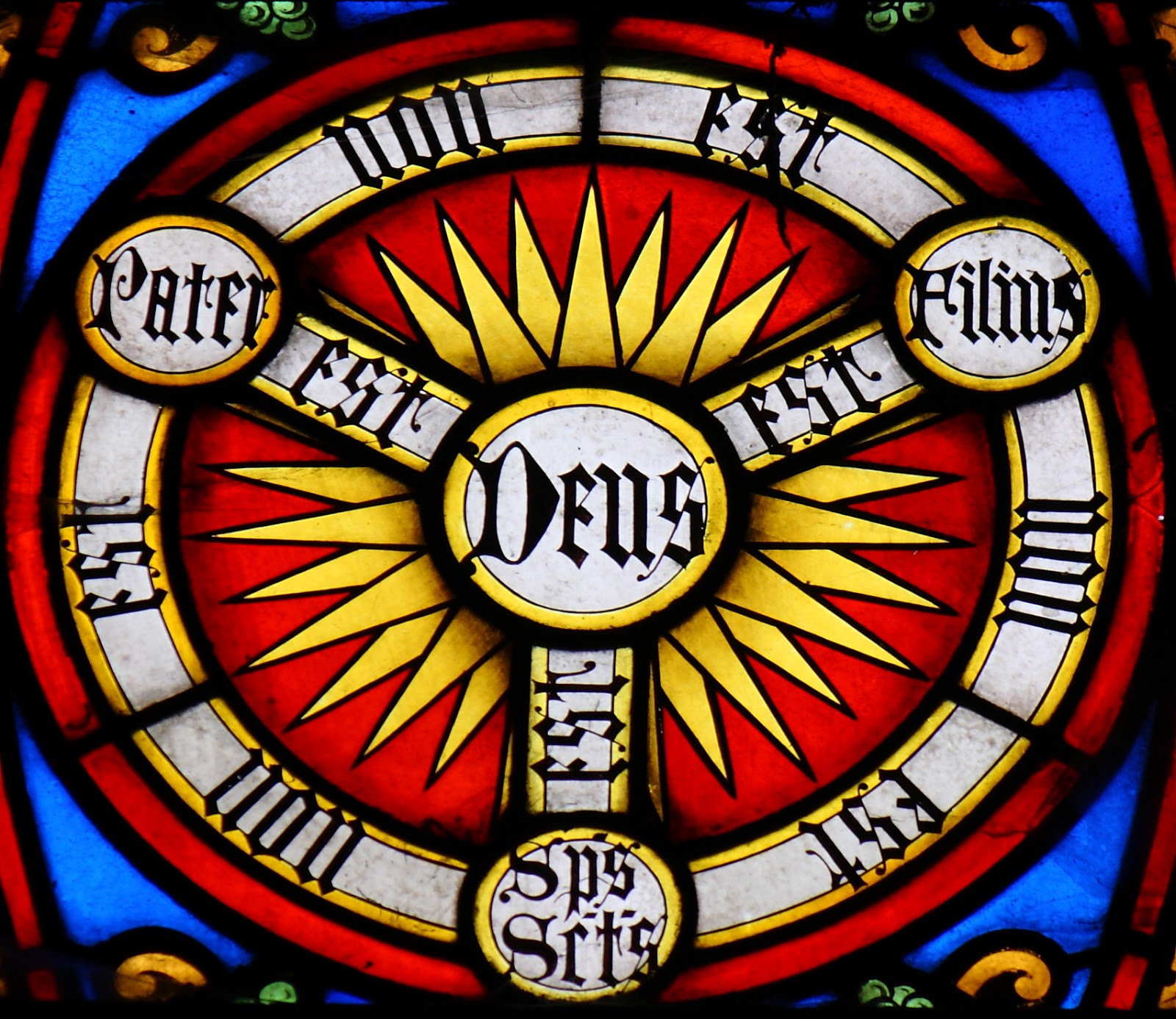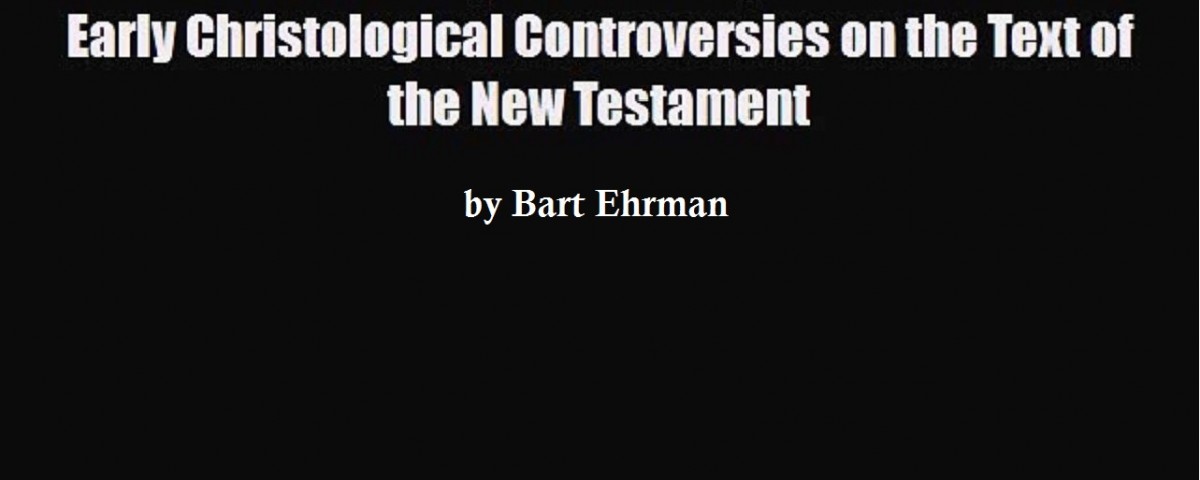
The Easy Language of Matthew & Luke
September 3, 2016
The Fateful “shift” from Son of God to “God the Son”
October 4, 2016On John 1.13

Nor were the Gnostics exempt from such charges, even though, as we have observed, orthodox heresiologists considered them somewhat exceptional in their abilities to find their doctrines in just about any text, regardless of its wording.[1] Nonetheless, they too were accused of altering Scripture in accordance with their own notions, as when Tertullian accused them of modifying the prologue to the Fourth Gospel so as to eliminate the idea of Jesus’ miraculous birth (“who was born not of blood nor of the will of the flesh nor of the will of man, but of God”; 1:13), and to introduce the notion of their own (“who were born…”).[2]
What is revealing about this final instance is that Tertullian was clearly wrong. It was not the Valentinian Gnostics who modified the passage, but, as we shall see, Tertullian (or more likely, an orthodox scribe before him).[3] There is no Greek manuscript that attests Tertullian’s form of the text, and only a solitary witness of the Old Latin. This leads to the striking observation that despite the frequency of the charge that heretics corrupted their texts of Scripture, very few traces of their having done so have survived antiquity.[4] In part this may simply show that the winners not only write the history, they also reproduce the texts. Orthodox Christians would not be likely to preserve, let alone replicate, texts of Scripture that evidence clear heretical biases. Did they, however, produce copies of Scripture that support their own biases? I will try to amass evidence that they did, but first we must deal with preliminary questions that make this evidence credible, that is, with certain kinds of textual realia presupposed by my study.
Other textual variants that stress the orthodox doctrine of the virgin birth occur outside the birth narratives of Matthew and Luke. One of the most striking appears in the manuscript tradition of the Fourth Gospel, a Gospel that does not record a birth narrative of its own. Some orthodox Christians of the early church thought that John nonetheless did allude to Jesus’ miraculous birth in the opening chapter of his Gospel. The most interesting patristic discussion occurs in Tertullian, who accuses his Valentinian opponents of tampering with the text of John 1:13 (de came Christi, 19). Originally, claimed Tertullian, the text referred to the birth of Jesus: “Who was born, not of blood, nor of the will of the flesh, nor of the will of a human, but of God.” The Valentinians, he maintained, sought to replace this reference to Jesus’ miraculous birth by making the passage refer to their own. This they did by making the verb plural: “who were born, not of blood, nor of the will of flesh, nor of the will of a human, but of God.” Tertullian went on to argue that the verse affirms in no uncertain terms both the supernatural character of Jesus’ conception (in that it occurred apart from sexual intercourse [“born not from blood…”]), and the reality of his birth as a physical event (against the Gnostics).
Is it possible that Tertullian’s form of the text, that is, with the singular form of the verb, was generated in an anti-adoptionistic milieu?[5] It is worth observing that in another context Tertullian cites the verse (in the singular) explicitly to counter the teachings of “Ebion” (de carne Christi, 24). Somewhat earlier, Irenaeus also quotes the verse in the singular to argue that Jesus was not a mere man, but that he came from God and was born of the virgin (Adv. Haer. III, 16, 2; 19, 2). Earlier still, the orthodox forgery, the Epistula Apostolorum, uses the verse to sanction belief in the miraculous birth of Jesus, quoting it again in the singular (chap. 3).
Despite the currency of this anti-adoptionistic form of the text in the second century—we can assume from Tertullian’s discussion that he, at least, knew of its presence in actual manuscripts of the Fourth Gospel—today the plural is read in every known Greek manuscript and by all the versional evidence, with one solitary exception: the Old Latin manuscript b. This scanty documentary support notwithstanding, the variant reading was championed by a number of textual scholars in the nineteenth century, and perhaps most convincingly by Adolf von Harnack at the beginning of the twentieth.[6]
Nonetheless, virtually all recent investigators have been impressed by the overwhelming support of the plural reading in the textual tradition and have recognized the tendentious character of the singular number.[7] Tertullian’s protestations notwithstanding, what we have here is not a heretical tampering with the text, but an orthodox one. The corruption serves to locate the orthodox notion of Jesus’ birth in a passage that otherwise lacked it.
[1] See further Pagels, The Gnostic Paul, 163-64, and Frederik Wisse, “The Nature and Purpose of Redactional Changes in Early Christian Texts.”
[2] de came Christi, 19.
[3] See, for example, the comments of Justin and Augustine in notes 87 and 92.
The reason for conforming the text to Mark rather than Matthew is self-evident: in both Mark and Luke the heavenly voice addresses Jesus in the second person; in Matthew it uses the third person. It was therefore easiest simply to keep the second person pronoun and harmonize the words to the familiar form of the second Gospel.
[4] One possible exception might be the ninth-century manuscript 0131 in Mark 9:7. At the same time, although this does seem to harmonize Mark’s account to the basic notion of Luke’s, it does not at all conform to Luke’s wording, which is the real matter of concern here.
[5] As I have noted, Tertullian accused the Valentinians of the corruption. This might suggest that the variant would be better treated later in my discussion of “antiseparationist” or “anti-docetic” corruptions. And, in fact, there is nothing implausible about the singular reading being generated simply to show that Jesus really was born. But there is also nothing in Tertullian’s discussion to indicate that he really knew whence the variant derived, and as I have argued that it is in fact the original text, there is no reason to think that either reading originated in the Valentinian controversy. All that Tertullian knew was that the Valentinians were using the verse to their own end; he addressed the problem by claiming that they themselves had created their own authoritative text. Since the singular number functions to stress that Jesus’ birth was unusual (not of blood . . .), rather than that it was a real birth, it probably makes better sense to understand the variant reading as originating in an attempt to demonstrate that Jesus came into the world in a miraculous way.
[6] “Zur Textkritik und Christologie der Schriften Johannes.” For the older literature, see Josef Schmid, “Joh 1,13.” Among modern translations, the Jerusalem Bible renders the verb in the singular.
[7] See, for example, Metzger, Textual Commentary, 196-97.
